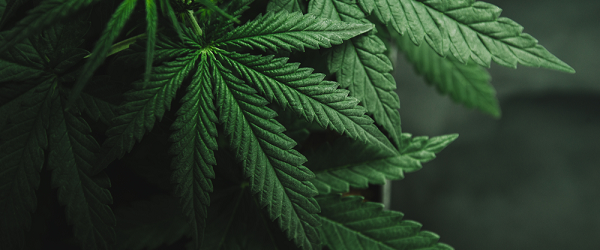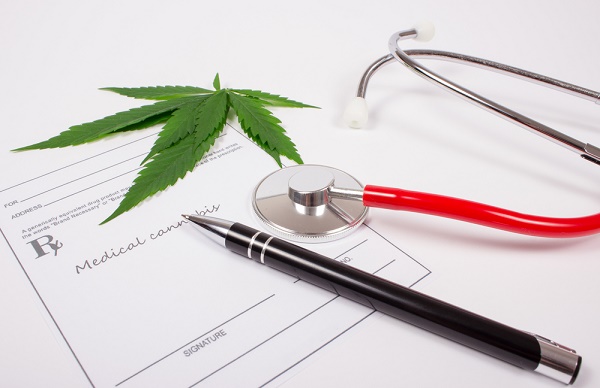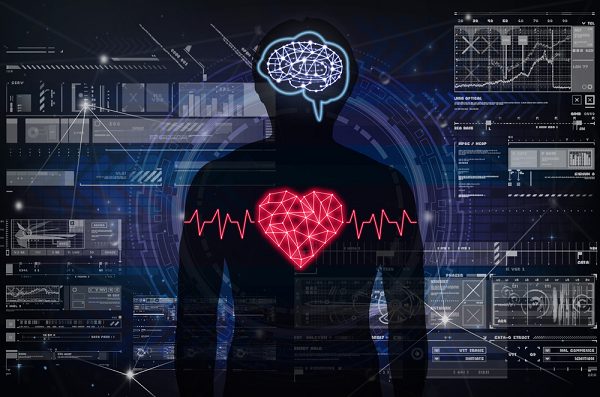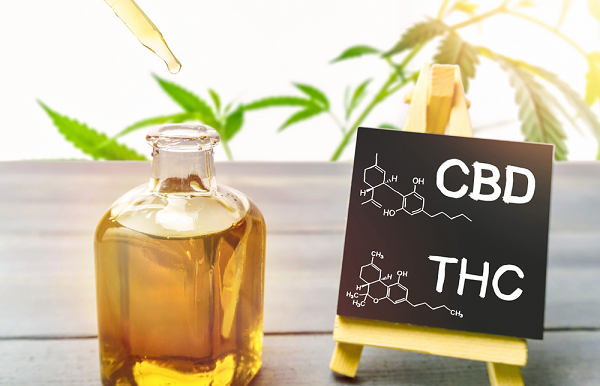Is Marijuana as Safe as You Think it is?
Stacey J. Drubner, JD, LICSW, MPH

EAP Ask the Expert: John Kelly, PhD, Massachusetts General Hospital, Director – Recovery Research Institute, Center for Addiction Medicine & Addiction Recovery Management Service
Data shows that recreational use of marijuana has increased in recent years:
- Gallup reported that overall use by those smoking marijuana has increased from 7% in 2013 to 16% in 2022. The same survey showed an increase in young individuals using marijuana, with 30% of those aged 18-34 indicating they use this substance.
- The Society for the Study of Addiction reported that the legalization of marijuana has increased the frequency of use by about 20% for people already using but didn’t necessary influence non-users to start.
With legalization in some states and so many cannabis and cannabis-like products popping up, there is a lot of information to navigate.
- What’s legal or allowed? The Federal Government and individual states have different laws and policies regarding marijuana and they are changing rapidly.
– Recreational marijuana is not legal on the Federal level.
- Marijuana can be characterized as:
– Medical – Ingested/smoked/vaped – cannabis is recommended for an ailment by a clinician
– Recreational – anyone can purchase and use cannabis
– Illegal – manufacture, sale, distribution, use is against the law – still true federally.
- There are different ways to use it – smoking, vaping, and edibles.
- People may confuse THC and CBD. THC, (delta-9-tetrahydrocannabinol), the main psychoactive ingredient in the marijuana plant and CBD, (cannabidiol), which is from the marijuana plant but not psychoactive.
- Perhaps the most important considerations – what impact does marijuana have on our health and if it is safe?
The short answer is that there are potential health effects and risks. To explore this more fully, we turned to John Kelly, psychologist, and addiction expert from MGH.

Please note:
- We will not specifically address the safety or efficacy of medical marijuana. There are limited FDA approved uses for a discrete number of medical interventions, with the most common indications for addressing side effects (such as nausea) from chemotherapy. There are also many off-label uses for several conditions, some of which are currently on trial. You can find studies on possible benefits here.
- Research into recreational marijuana is evolving. With both legal and illegal supplies of cannabis and no federal regulation of recreational marijuana, studying this drug can be complicated.
The Myth about the Overall Safety of Marijuana
 If marijuana does have some significant health risks and impacts, we wondered why there is the perception that marijuana is safe. John provides some explanation:
If marijuana does have some significant health risks and impacts, we wondered why there is the perception that marijuana is safe. John provides some explanation:
- People mistakenly associate being legal with being harmless. Look no further than alcohol or prescription opioids to see evidence to the contrary.
- Beliefs about the relatively low potency of marijuana when it first became popular in the 1960s and 1970s need to be updated to reflect the strains on the market today (standard grade Marijuana is about 3-4x as strong as it was in the 1980s)
– Many don’t comprehend that the potency of current-day marijuana can produce dangerous impairment and long-term negative effects. - Since marijuana tends to have more “relaxing” or “chill” effects, it may be viewed as not impactful or having less consequences than those associated with other drugs. For example, alcohol can be a precipitant for aggressive behavior.
- Marketing efforts have created a “medicalization effect” in which FDA approval for a narrow list of medical conditions is incorrectly transferred to benefits related to recreational use. This leads to an implicit notion that “smoking Marijuana is good for you”.
Areas of Risk Related to Marijuana
As discussed above, there are approved medical uses for marijuana that provide relief to many, particularly those suffering from side effects of cancer treatment. Additionally, some enjoy the relaxing, calming effects of recreational marijuana. Despite these benefits, it’s useful to have a clear understanding of the risks associated with long-term use of marijuana.
Below we review some current research and clinical knowledge about how marijuana can negatively impact your health. As an informed consumer, your decision to use marijuana should be based on your own unique health status and risks, with input from your medical provider.
John underscores that risk is based on level of exposure (potency of dose, frequency of use and method of administration), age, and personal health history.

Brain Health
According to the CDC, short-term effects on any cannabis user can include problems with memory, thinking, attention and coordination, with the most serious and lasting impacts in younger populations. Prolonged use that begins early in life can impact brain development. John explains that substance use by kids can permanently alter genes (epigenetic effects) during critical growth phases.
A study out of New Zealand which evaluated brain function showed that long-term cannabis users’ IQs declined by 5.5 points from childhood, and there were deficits in learning and processing compared to non-users. Frequency of use seemed to lead to more cognitive impairment, suggesting a potential causative link.
Fetal Development
Studies indicate that using marijuana may not be advisable during any phase of pregnancy. In particular, decreases in birth weight were reported when marijuana was used during pregnancy. Low birth weight is tied to many issues, such as developmental delays and learning disabilities.
Cardiac and Heart
An article in Healthline summarizes preliminary research (presented at the American Heart Association Meeting) that raises concerns about cannabis related to heart issues and strokes.
- Older adults with cannabis use disorder and risk for cardiovascular disease had a higher risk of a major heart or brain-related event while hospitalized, compared to non-users with similar health histories.
- Another study showed that daily cannabis users had an increased risk of developing heart failure.
Lung Impacts
The American Lung Association links to several studies that discuss how smoking and in particular, smoking marijuana has negative impacts on the lungs. “Smoking marijuana clearly damages the human lung. Research shows that smoking marijuana causes chronic bronchitis and marijuana smoke has been shown to injure the cell linings of the large airways, which could explain why smoking marijuana leads to symptoms…”
Dangers related to Driving & Marijuana
In the Commonwealth of Massachusetts it is illegal to drive while under the influence of marijuana.
The CDC reports that driving after using marijuana leads to problems with:
- Reaction
- Decision-making
- Coordination
- Perception
Deficits in skills needed for driving can lead to accidents and injury to the user and others. JAMA Open Network reports that since the legalization of recreational marijuana, serious injuries related to use of cannabis have increased, particularly among young males.
Potential Mental Health Effects of Marijuana
A recent article in the New England Journal of Medicine discusses some psychiatric impacts related to marijuana, including:
- Anxiety
- Delirium
- Psychosis
Addiction, Dependence & Other Harms from Substance Misuse
Marijuana use can lead to Cannabis use disorder. John explains that cannabis use disorder is a formal diagnosis (the most severe form of which is commonly known as addiction) which stems from the same phenomenon that is common with other drugs.
- It starts because use of marijuana produces desirable effects, which can alleviate negative experiences and enhance positive or neutral experiences.
- Immediate, potent, predictable, outcomes lead to repeated use.
- That repetition leads to changes in the brain, associated with the adaptation to the presence of the drug, which can lead to dependence and addiction.
- Dependence is characterized as physiological, and addiction is related to the psychological desire for the substance and often includes physiological dependence on the drug.
There are also risks associated with mixing marijuana with other drugs, which can lead to unpredictable and dangerous outcomes.
- Using alcohol and marijuana together can quadruple sedative effects.
- Mixing cocaine with marijuana can minimize effects and may lead to unsafe dose increases.
Extreme caution should be used in sourcing marijuana from anywhere besides a licensed dispensary, due to the high probability that marijuana from street dealers may contain fentanyl, which can be deadly.
Comparing the Risk of THC versus CBD

THC
THC is the psychoactive ingredient in marijuana that results in euphoria, disinhibition, sedation, and initially lowered anxiety. It is associated with all of the potential risks listed above.
CBD
CBD is also from the marijuana plant, but not psychoactive. It does not produce a “high” but some report a calming effect or reduced anxiety. CBD is not addictive and does not lead to impairment. John cautions that just because something is sold over the counter does not mean it can’t have side effects. Too much of anything can be problematic. Since CBD is not regulated, there is no consistency or standards about safety.
Comparison of Safety Risks of Smoking, Vaping, and Edibles
- Smoking and vaping have the same route of administration (through the lungs) and have the most immediate effect. They have different risks and benefits:- Smoking is more impactful on the lungs, (particularly if mixed with tobacco), due to strong combustible properties. It may however be a better method for regulating the dose and desired effect.
– Vaping likely has less serious lung side effects but is faster acting and more potent (pure essence of psychoactive ingredients). This means that there is a greater potential for more acute intoxication, addiction, and negative impacts on the brain with regular use.
- Edibles have very high potency THC, with a delayed onset because it takes longer to get absorbed into the bloodstream. This delay means that people may not feel the effects right away and ingest more. This may result in greater levels of intoxication and long-term effects on the brain and cognition.
Help for a Marijuana Issue
Understanding when Marijuana use Becomes Problematic
John explains that a good time to evaluate use of any drug is when it starts to cost you more than money and it begins to take on an abnormally high priority in your day-to-day life. For example, you:
- Begin to base your lifestyle around use of the substance
- Plan your day around getting and using marijuana
- Have a social group made up of mostly or only users
- Focus on drug use to the detriment of other things in your life
- Have problems stopping or cutting back when you promise yourself/others you will
- Are losing control while impaired
- Are experiencing problems with work, school, relationships and/or the law because of your use
- Have medical complications, such as those referenced above
Getting Help for Yourself
Cannabis Use Disorder responds well to the treatments and types of supports that are common with other substance use disorders. Currently, there are no medications for cannabis use disorder. Available interventions include:
- Cognitive Behavioral Therapy (CBT)
- Motivational therapies
- Psychotherapy
- Family counseling
- Marijuana Anonymous
John indicates that withdrawal from marijuana is safer and has less risk than withdrawing from alcohol or opioids. It does not need to be managed medically and is not life-threatening. It may cause significant discomfort, insomnia, mood issues or problems with concentration. In most cases, these side effects should resolve in a few days to weeks, depending on for how long and how intensively you have been using the drug.
 Helping a Friend or Loved One
Helping a Friend or Loved One
It can be difficult or awkward to approach a family member or friend who you see is having problems with marijuana. John recommends the following:
- Share your concerns.
- Be honest about what you observe and the way(s) in which you see their drug use as harmful to them and to your relationship with them.
- Provide them with information where they can learn more on the facts about marijuana.
- Explain that despite short-term benefits (feeling relaxed, less stressed, or worried), it can lead to many problems just like any other substance.
-It’s habit forming and can lead to dependence, cannabis use disorder, and cannabis addiction.
-It can impact functioning, relationships, and happiness.
- Consider setting a specific time and having a discussion about their marijuana use when they are not under the influence.
- Reinforce the fact that most people can and do recover from marijuana problems with help or the use of other healthier coping mechanisms.
Resources
General
- Understanding Marijuana & Vaping
- Using Marijuana Safely
- Addiction & Recovery Resources
- Help for Substance Misuse & Abuse
Other EAP Features about Substance Use and Well-being
- Young People are at High Risk for Opioid-Related Overdose
- The Drawbacks of Using Alcohol to Cope
- Women are more at Risk for Health Consequences of Drinking
Help from the EAP
The EAP offers free and confidential services for employees and immediate household family members. EAP records are separate from medical and HR records. Contact the EAP at 866-724-4327 or request an appointment via our online form for confidential assistance. In-person appointments are available at the following locations. Phone or Video (Zoom) appointments are available from all locations







